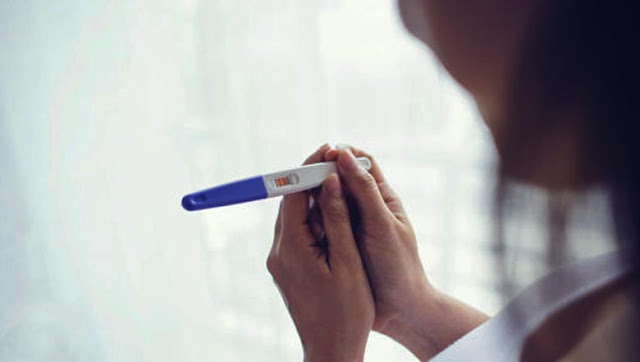Pregnancy tests and ultrasounds are accurate ways to determine if you are pregnant, however, there are other signs that indicate the beginning of the pregnancy, which goes beyond a missed period.
How do you know you are pregnant? What are the symptoms that occur during pregnancy? And when do these symptoms start?
The first week of pregnancy starts on the date of your last period, even if you are not already pregnant. Some women may experience pregnancy symptoms as early as the first week, while others may have mild symptoms.
However, the best way to find out if she is pregnant is to take a pregnancy test, which measures the amount of (hCG) in her urine. This is a hormone that only exists when a woman is pregnant. It is produced by the cells that surround an egg and later become the placenta.
Pregnancy occurs when a sperm fertilizes an egg and implantation begins about 6 to 7 days after conception. This happens when the fertilized egg attaches to the lining of the uterus and the movement of the egg can cause the blood vessels inside the lining of the uterus to break down. This movement can cause slight bleeding and cramping in the abdomen, pelvis or lower back.
Early symptoms of pregnancy
Missed period
It is one of the most obvious early symptoms of pregnancy that causes most women to take a pregnancy test, due to the lack of menstrual periods, and once the egg has finished fertilizing, the body begins to produce human chorionic gonadotropin (hCG). This hormone helps the body maintain pregnancy and also prevents the ovaries from releasing mature eggs every month.
Nausea and vomiting
Nausea and vomiting are associated with hormonal changes, and nausea or aversion to certain foods may persist throughout pregnancy. Nausea usually develops between the fourth and sixth week. Although it is called morning sickness, it can occur at any time of the day or night.
Fatigue and dizziness
Fatigue can develop at any time during pregnancy, which is normal and is often associated with high progesterone levels, and the sensation of dizziness and fainting is associated with dilated blood vessels, low blood pressure, low blood sugar and high blood production, which can improve the sensation. Drowsy.
Breast changes
A woman's hormone levels change rapidly after pregnancy. As a result of these changes, the breasts swell and become sensitive to touch after a week or two. The area around the nipples, called the areola, also becomes dark.
Mood changes
High levels of estrogen and progesterone during pregnancy can affect mood and make women more emotional and reactive than usual. It can also affect feelings of depression, anxiety and euphoria.
Bloating and constipation
High levels of progesterone can lead to constipation. The hormone progesterone makes food pass more slowly through the intestines, causing a bloated feeling in the stomach.
weight gain
Weight gain becomes more common towards the end of the first trimester. Caloric requirements for an early pregnancy do not change much from the usual diet, but they increase as the pregnancy progresses.
Some women may notice these symptoms during the first week of pregnancy, while in other women the symptoms may include the absence of a menstrual cycle only, but these physical changes and other symptoms of pregnancy only appear in the first trimester and fade afterwards.



